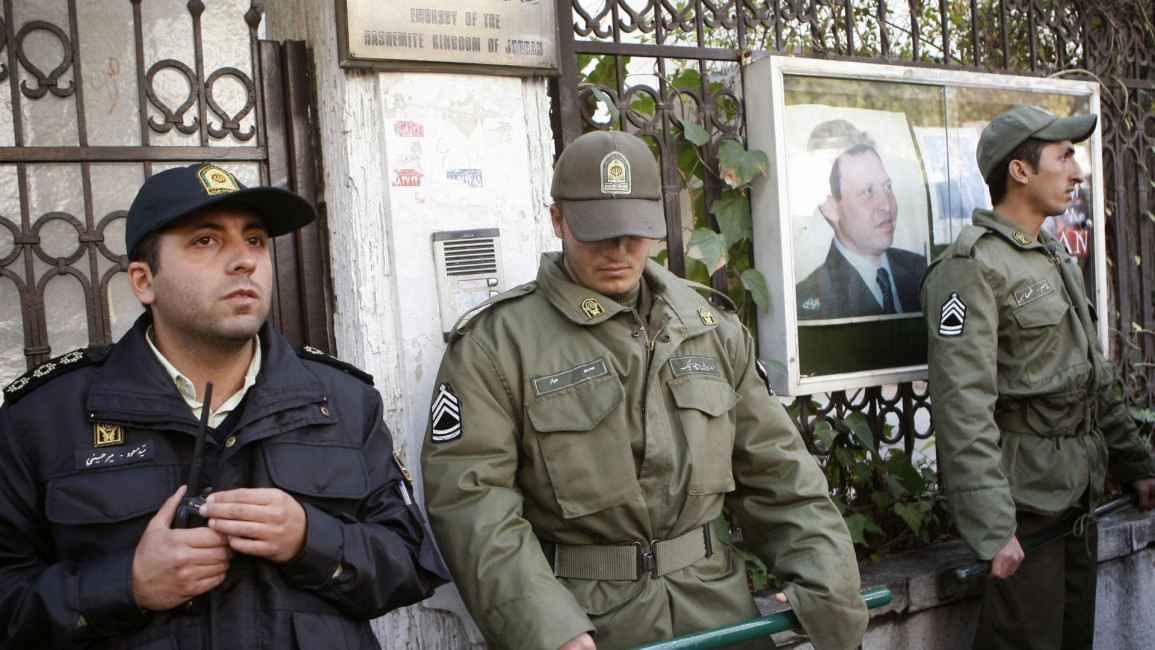Jordan follows Riyadh's lead and recalls Iran ambassador
Jordan has recalled its ambassador from Tehran due to Iran's "interference" in the Gulf region, it emerged on Monday.
Abdullah Abu Rumman, Jordan's ambassador to Iran, has been recalled to Amman over Tehran's policies towards Arab countries, said Mohammed Momani, the government spokesperson.
Amman said that the Iran had been "creating crises and deepening instability" in the region, according to The Jordan Times.
Jordan's foreign minister ordered the recall, Momani added, and said that the ambassador would consult with the government over its next step.
Amman's decision follows the deepening of a rift between GCC countries and Iran after Saudi Arabia executed popular Shia cleric Nimr al-Nimr in January.
His death sparked a wave of protests in Iran, and crowds ransacked Riyadh's embassy and consulate, causing a diplomatic furore. Riyadh's Arab allies - including Sudan and Somalia - also broke diplomatic ties with Tehran in the wake of the attack.
Saudi Arabia, UAE and other Gulf countries have accused Iran of "interfering" in Bahrain and Yemen, and supporting the suppression of Sunnis in Syria and Iraq.
However, despite sharing a similar foreign policy to Saudi Arabia and being a member of Riyadh's "anti-terror alliance", Jordan has recently enjoyed fairly cordial relations with Iran.
This likely contributed to Amman's reluctance to break ties with Iran until now.
There are questions about the timing of the announcement, some four months after the initial Iran-Saudi diplomatic spat.
Saudi Arabia's Crown Prince Mohammed bin Salman - said to have a leading role in Riyadh's foreign policy - visited Jordan last week, where the two countries announced a joint investment fund.
And last week, the Organisation of Islamic Cooperation met in Istanbul and slammed Iran's role in the Middle East.
"The Conference deplores Iran's interference in the internal affairs of the states of the region and other member states including Bahrain, Yemen, Syria, and Somalia, and it continues support for terrorism," the 57-member Muslim bloc said in a statement.
Meanwhile, the Arab League also followed the GCC's lead and designated Hizballah a "terrorist organisation".
The Iranian-backed Lebanese Shia political and paramilitary group has been banned as such by Israel, the United States and the GCC, though only its military wing has been proscribed by the United Kingdom and the European Union.
Despite the widespread criticism of Iran among Arab countries, Jordan and Iran continued to make high-level diplomatic gestures, including a visit to Tehran by Foreign Minister Nasser Judeh, which has been reciprocated by his Iranian counterpart.
Warmer relations followed a decades-long thaw between the two countries after Ayatollah Khomeini took charge of Iran with the overthrow Jordan's regional ally Shah Mohammed Reza Pahlavi.
In July, relations worsened again after Jordan "foiled" an Iranian-linked terror attack in the kingdom, which Tehran firmly denied any connection to.
Jordan has also been criticised by the Iranian leadership for its relations with Israel and traditional opposition to many armed Palestinian groups.



![Squad incumbent Summer Lee has won her district's Democratic primary. [Brooke Anderson/The New Arab]](/sites/default/files/styles/image_330x185/public/2024-04/413898031_1041031157158522_8195934720767720634_n%20%283%29.jpg?h=ff8c3fa3&itok=75Sx6fbL)